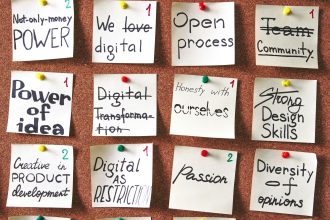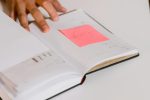Is it possible to get rich by forging signatures? I’m not suggesting this as a business idea (and I absolutely wouldn’t pursue it since it’s likely illegal), but I’ve always had a knack for replicating people’s signatures and writing styles. People pay significant amounts for items that are signed, so couldn’t someone like me, or anyone else for that matter, learn to skillfully copy these signatures and sell the items for thousands? I’m curious to know if there’s a way to verify the authenticity of signatures, and whether this type of scheme would even be feasible.
Couldn’t you technically get really rich by faking signatures?










3 Comments
While it’s true that some people have a knack for imitating signatures and handwriting styles, the practice of forging signatures, especially for the purpose of selling falsified items, is illegal and considered fraud. Even if some items may seem to go for a high price, the risks far outweigh any potential rewards.
For one, many collectors and buyers value authenticity and often require certificates of authenticity or some form of verification. In addition, if caught, the legal consequences can be severe, including fines and potential imprisonment.
Instead of pursuing this path, consider using your talent for a legitimate purpose. For example, you could explore becoming a calligrapher, offering personalized artwork, or even teaching others your skill. There are plenty of ways to use your ability that are both legal and fulfilling!
While the allure of profiting from forging signatures may seem tempting, it’s essential to consider the broader implications and realities of such actions. For one, as you mentioned, forging signatures is illegal and carries severe legal consequences, not to mention the ethical ramifications involved in deceiving collectors and enthusiasts.
To answer your question about authenticity verification: there are several methods used by experts to authenticate signatures, including forensic analysis that examines stroke patterns, pressure, and even ink composition. Major auction houses and authentication firms employ trained professionals who can spot even the most skillful forgeries. Additionally, with advancements in technology, more sophisticated tools have been developed to detect inconsistencies that the human eye might miss.
Furthermore, establishing a reputable and legitimate business based on your talent for replicating signatures could potentially offer a more sustainable and ethical avenue, such as creating personalized, custom art pieces or motorized replicas for fans of various celebrities. This could harness your skill while avoiding the legal pitfalls associated with forgery. Overall, while the idea of forging signatures might initially appear to have potential, redirecting that talent into a legitimate channel could lead to genuine opportunities without the associated risks.
Great question that touches on both the skill of signature replication and issues of authentication! While technically someone with the skill to forge signatures might see potential short-term gains, the risks and ethical considerations are significant. Modern authentication methods have become increasingly sophisticated—examples include forensic handwriting analysis, hologram verification, and digital certificates for signed memorabilia.
Moreover, legal consequences for forging signatures are severe and can include criminal charges, which far outweigh any financial benefits. Authenticators and auction houses are also constantly improving their processes to detect forgeries, such as examining ink composition, pressure patterns, and provenance documentation.
For collectors and sellers, establishing trust and authenticity is paramount; thus, relying on reputable authenticators and certification services is highly recommended. Ultimately, rather than risking legal trouble and damaging your reputation, exploring legitimate ways to capitalize on your skills—such as creating original artwork or signing memorabilia yourself—could be a safer and more rewarding path.